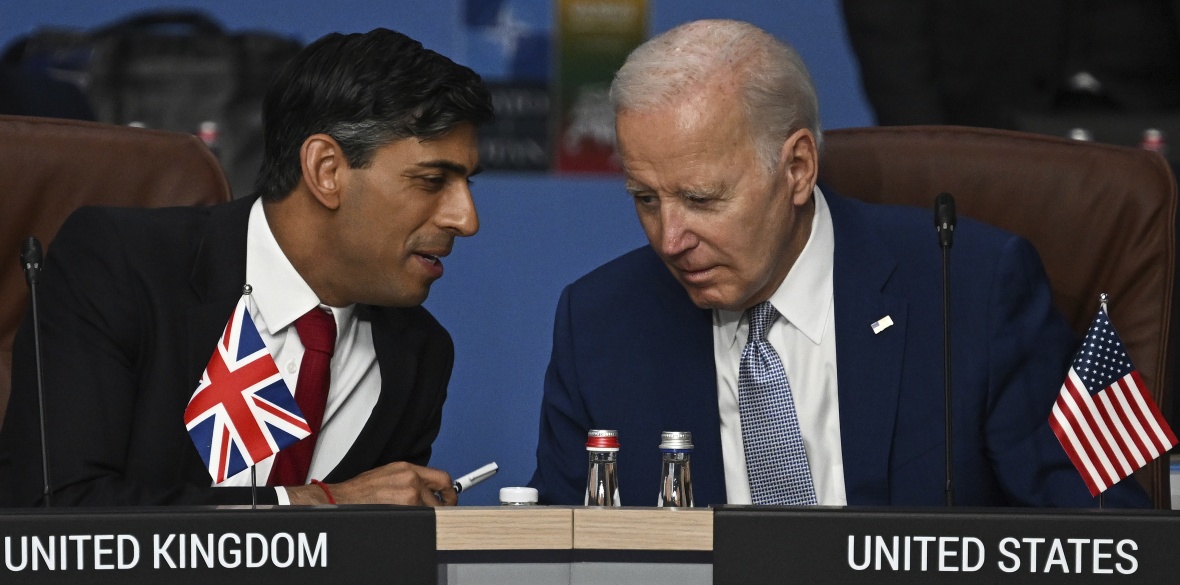‘Israel-Hamas War’ Label Obscures Israel’s War on Palestinians
Original article by GREGORY SHUPAK republished from FAIR. This work is licensed under a Creative Commons Attribution-NonCommercial-NoDerivs 3.0 Unported License.

Since October 7, the day the escalation in Israel/Palestine began (FAIR.org, 10/13/23), American media outlets have persistently described the fighting as an “Israel-Hamas war.” From October 7 through midday on December 1, the New York Times, Wall Street Journal and Washington Post have combined to run 565 pieces that use the phrase “Israel-Hamas war.”
This paradigm has been a dominant way of covering the violence, even though Israel has been clear from the start that its assault has not been narrowly aimed at Hamas. At the outset of the Israeli onslaught, Israeli Defense Minister Yoav Gallant (Times of Israel, 10/9/23) said: “I have ordered a complete siege on the Gaza Strip. There will be no electricity, no food, no fuel, everything is closed.” Oxfam later said that such restrictions on Palestinians’ ability to eat—which left 2.2 million people “in urgent need of food”—mean that Israel is deploying a policy wherein “starvation is being used as a weapon of war against Gaza civilians.”
A day later, Israeli military spokesperson Adm. Daniel Hagari (Guardian, 10/10/23) said that “hundreds of tons of bombs” had already been dropped on the Gaza Strip, and admitted that “the emphasis is on damage and not on accuracy.”

The indiscriminate nature of Israel’s assault is clear. The United Nations Office for the Coordination of Humanitarian Affairs reported on November 24 that “over 1.7 million people in Gaza, or nearly 80% of the population, are estimated to be internally displaced.” On November 25, the Swiss-based Euro-Mediterranean Human Rights Monitor reported that Israel had killed 20,031 Palestinians in Gaza, 18,460 of whom (or 92%) were civilians, since October 7.
Thus, while Israel has openly acknowledged that it is carrying out indiscriminate violence against Palestinians, US media outlets do Israel the favor of presenting its campaign as if it were only aimed at combatants. “Israel-Gaza war” comes closer to capturing the reality that Israel’s offensive is effectively against everyone living in Gaza. Yet “Israel-Gaza war” appears in 265 pieces in the three papers, exactly 300 fewer than the obfuscatory “Israel-Hamas war.”
Consider also the Euro-Mediterranean Human Rights Monitor finding that Israel has slaughtered 8,176 children. If 41% of all the Palestinians Israel has killed in the first seven weeks of its rampage have been children, and 8% have been combatants, then it is less an “Israel-Hamas war” than an Israeli war on Palestinian children.
Characterizing what has happened since October 7 as an “Israel-Hamas war” fails to adequately capture the scope and the character of Israel’s violence. Describing the bloodbath in Palestine this way obscures that grave violence is being visited upon virtually all Palestinians, whatever their political allegiances and whatever their relation to the fighting.
Cognitive dissonance

Corporate media have often stuck to the “Israel-Hamas war” approach even when the information the outlets are reporting shows how inadequate it is to conceive of Israel’s attacks in that way. For instance, the New York Times (10/20/23) ran a story about Israel ordering 1.2 million Gaza residents to evacuate their homes, and still classified the evacuation as part of the “Israel-Hamas war.” The Izz ad-Din al-Qassam Brigades, Hamas’ armed wing, is estimated to have 30,000–40,000 fighters (Axios, 10/21/23).
The Wall Street Journal published a short piece (11/6/23) that noted:
The United Nations said that the Israel-Hamas war has killed the highest number of UN workers in any single conflict. The UN said that over 88 workers in its Relief and Works Agency [UNRWA], the largest humanitarian organization in the Gaza Strip, have been killed since October 7.
But UNRWA did not itself use the “Israel-Hamas war” narrative in the report to which the Journal referred, instead opting for “escalation in the Gaza Strip.” Indeed, Israel killing UN workers at a rate of almost three each day would seem to fall outside the bounds of an “Israel-Hamas war,” but that’s how the paper categorizes the violence. (“Israel’s war on the UN” falls well outside the bounds of the ideologically permissible in the corporate media.)
A Washington Post article (11/7/23) titled “Israel’s War in Gaza and the Specter of ‘Genocide’” quoted several experts and political leaders making a credible case that, in the words of Craig Mokhiber, former director of the United Nations’ New York office on human rights, “the term ‘genocide’ needs to be applied” to what Israel is doing in Gaza.
Nevertheless, the article’s author, Ishaan Tharoor, attributed such statements to “critics of Israel’s offensive against the Islamist group Hamas,” and described the violence as “Israel’s overwhelming campaign against Hamas.” Genocide as defined by the UN requires “the intent to destroy a national, ethnic, racial or religious group, in whole or in part.” So saying that Israel’s attacks are directed “against Hamas” twice in an article pointing to authorities on genocide invoking the term with reference to Israel’s actions in Gaza ought to generate cognitive dissonance.
Violence on the West Bank

Another problem with classifying the bloodshed of the last seven weeks as an “Israel-Hamas war” is that Israel has also enacted brutal violence and repression on the West Bank, which is governed by the Palestinian Authority, Hamas’ arch rivals; Hamas is mostly confined to Gaza (Electronic Intifada, 10/28/23).
Between October 7 and November 26, Israeli forces killed 222 Palestinians in the West Bank, and Israel’s government-backed settlers killed eight more. In that period, Israel has also repeatedly carried out airstrikes in the West Bank, hitting such targets as the Balata refugee camp (Reuters, 11/18/23) and a mosque in the Jenin refugee camp (BBC, 10/22/23).
Israel has also arrested hundreds of West Bank Palestinians since October 7 (AP, 11/26/23) and attacked a hospital in Jenin, shooting a paramedic while they were inside an ambulance and using military vehicles to block ambulances from entering hospitals.
It would therefore make more sense to speak of an “Israel-Palestine war” than an “Israel-Hamas war,” but the former has been used in just two articles in my dataset.
What the media presents as a war between Israel and an armed Palestinian resistance group is in reality an Israeli war on Palestinians’ physical survival, on their food and clean water supplies, on their homes, healthcare, schools, children and places of worship—a war, in other words, on the Palestinians as a people.
Original article by GREGORY SHUPAK republished from FAIR. This work is licensed under a Creative Commons Attribution-NonCommercial-NoDerivs 3.0 Unported License.



